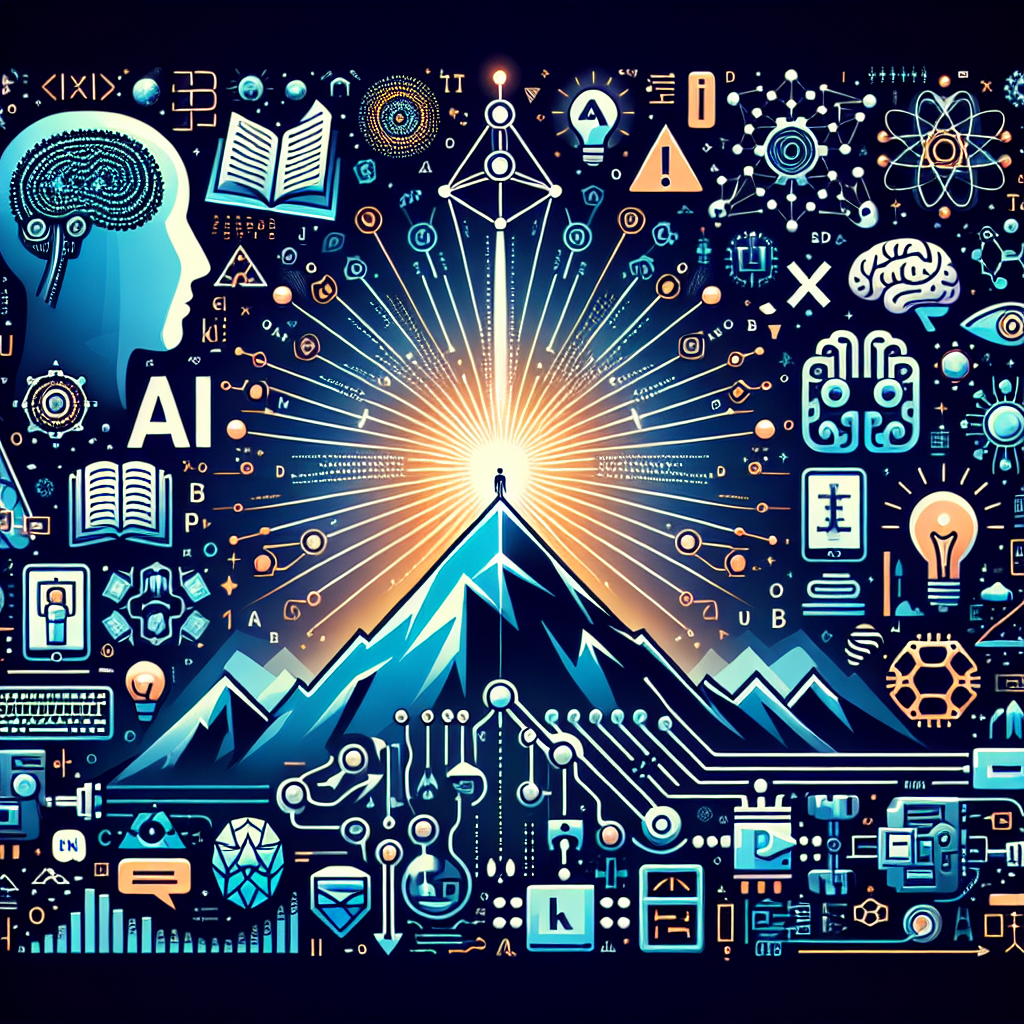Artificial General Intelligence (AGI) and the Singularity are two concepts that have captured the imagination of scientists, technologists, and futurists for decades. AGI refers to a hypothetical AI system that possesses the ability to understand and learn any intellectual task that a human being can. The Singularity, on the other hand, is a hypothetical event in which AGI surpasses human intelligence and triggers an exponential explosion in technological progress, leading to profound changes in society and the nature of human existence.
In this article, we will explore the theoretical possibilities of AGI and the Singularity, examining the potential benefits and risks of these technologies. We will also address common questions and concerns about AGI and the Singularity in a FAQ section at the end of the article.
AGI: The Holy Grail of AI
Artificial Narrow Intelligence (ANI) systems, such as voice assistants and recommendation algorithms, are already in widespread use today. These systems are designed to perform specific tasks within a narrow domain, such as recognizing speech or recommending products. However, ANI systems lack the ability to generalize their knowledge and apply it to new situations, which is a key characteristic of human intelligence.
AGI, also known as strong AI or human-level AI, is the next frontier in AI research. An AGI system would be able to understand and learn any intellectual task that a human can, from playing chess to writing poetry. Achieving AGI would represent a major breakthrough in the field of artificial intelligence and could have far-reaching implications for society.
The Potential Benefits of AGI
The development of AGI has the potential to bring about significant benefits to society. For example, AGI could revolutionize healthcare by analyzing vast amounts of medical data to diagnose diseases and develop personalized treatment plans. AGI could also accelerate scientific research by automating the process of hypothesis generation and experimentation.
In the field of education, AGI could personalize learning experiences for students, tailoring educational materials and activities to each student’s unique needs and learning style. AGI could also assist in the development of new technologies, such as autonomous vehicles, by simulating various scenarios and predicting potential outcomes.
Overall, AGI has the potential to enhance human capabilities and improve the quality of life for people around the world. However, the development of AGI also raises important ethical and societal considerations that must be carefully addressed.
The Risks of AGI
While the potential benefits of AGI are significant, the development of this technology also poses risks and challenges. One of the main concerns surrounding AGI is the possibility of unintended consequences, such as the misuse of AI systems for malicious purposes. For example, an AGI system could be used to manipulate public opinion or carry out cyber attacks with devastating consequences.
Another concern is the potential impact of AGI on the job market. As AI systems become increasingly capable of performing complex tasks, there is a risk that many jobs could be automated, leading to widespread unemployment and economic disruption. It will be important for policymakers to consider these risks and develop strategies to mitigate the negative impacts of AGI on society.
The Singularity: A Paradigm Shift in Human History
The concept of the Singularity, popularized by futurist Ray Kurzweil, posits that AGI will eventually surpass human intelligence and trigger an exponential explosion in technological progress. According to Kurzweil, this event will mark a paradigm shift in human history, leading to the emergence of superintelligent AI systems that far exceed human capabilities.
The Singularity is often portrayed as a moment of profound transformation, in which humans will merge with machines to transcend their biological limitations and achieve a level of intelligence and consciousness that is beyond our current understanding. Some proponents of the Singularity believe that it will herald a new era of abundance, in which AI technologies will solve humanity’s most pressing problems and unlock new possibilities for human creativity and exploration.
However, the idea of the Singularity also raises important questions about the implications of superintelligent AI for society and the future of humanity. For example, what will be the ethical implications of creating AI systems that are more intelligent than humans? How will society adapt to the rapid pace of technological change that the Singularity is expected to bring about? These are complex questions that will require careful consideration and deliberation.
FAQs about AGI and the Singularity
Q: When will AGI be achieved?
A: The timeline for achieving AGI is uncertain, with estimates ranging from a few decades to a century or more. Many experts believe that AGI is still a long way off, given the complexity of replicating human-level intelligence in machines.
Q: What are the ethical considerations surrounding AGI?
A: Ethical considerations surrounding AGI include issues such as privacy, bias, accountability, and the potential impact on society. It will be important for developers and policymakers to address these concerns to ensure that AGI is developed and deployed responsibly.
Q: Will AGI be beneficial or harmful to society?
A: The impact of AGI on society will depend on how it is developed and deployed. While AGI has the potential to bring about significant benefits, there are also risks and challenges that must be carefully managed.
Q: What are the implications of the Singularity for humanity?
A: The implications of the Singularity for humanity are uncertain, with proponents and skeptics offering different perspectives on the potential outcomes. It will be important for society to engage in a thoughtful and informed dialogue about the implications of superintelligent AI for the future of humanity.
In conclusion, AGI and the Singularity represent exciting and challenging frontiers in the field of artificial intelligence. While the potential benefits of these technologies are significant, there are also risks and ethical considerations that must be carefully addressed. By engaging in thoughtful dialogue and collaboration, we can work towards harnessing the power of AGI and the Singularity to create a better future for humanity.

